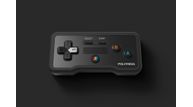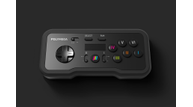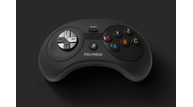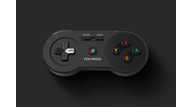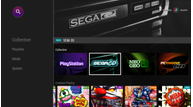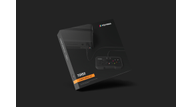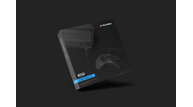
Polymega Interview: How this modular console may change the way we enjoy retro gaming
During E3 2018, I had the opportunity to have a conversation with Bryan Bernal, co-founder of Playmaji, Inc., which is the parent company behind a fascinating new console called the Polymega.
For those unaware, the Polymega is a retro-focused console that allows users to insert their old cartridges and CDs into one of many console-specific modules the base unit supports. You are also able to back up your games to the device, allowing you to enjoy your old games without the need to have any physical media inserted. All the while, you have a legal alternative to what is considered to be a gray market.
Don't think this console is just some fan project, either - Playmaji is made up of video game industry veterans who have worked on a variety of big titles including the Ratchet & Clank and Titanfall series. They are looking to solve some of the main problems surrounding emulation, and we discussed that along with a range of other topics in this extensive interview.
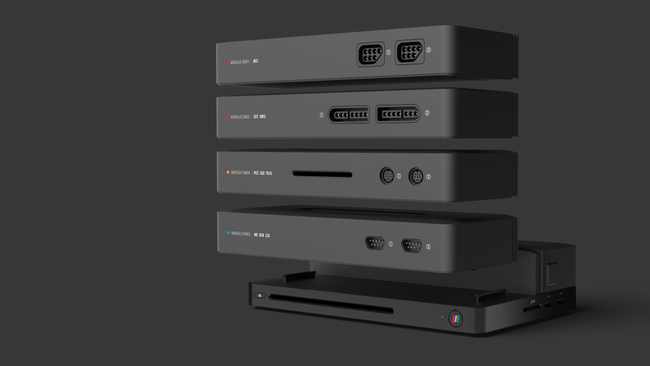
RPG Site: Starting off, tell us a little bit about the Polymega and what led you guys to actually make it.
Bryan: The Polymega, as you probably know, is a retro-focused modern console and the reason why we made it was I took a trip to Japan back in 2015 with my girlfriend. I actually dumped out two giant luggage suitcases, dumped all my clothes on the floor, and I filled them all up with classic game consoles from Japan and games that I'd always wanted since I was a kid.
I brought them all back and did the same thing that we all do, which is to try to hook it up to an HDTV. You see that there is terrible picture quality, some of the consoles have issues with capacitors and all this stuff. I actually learned how to fix all those things and got it all working, but who has the time for this stuff? A couple of the guys, former people that worked in game development and I started talking about the idea of making a new console that would support all the classic game systems. Keep it nice and clean in your living room, make it really modern and beautiful, and that’s how the project started 2 years ago.
RPG Site: So it all began as you were thinking about going to Kickstarter to get the funding for this, but it seems like you had investors knocking on your door. What was that like?
Bryan: We had already been talking to investors prior to the announcement of the system, so one of the things that we got was trepidation from people not sure how the audience was going to respond to this. It's something totally new, it has never been done before. Essentially, what we did was say, okay, let's go ahead and announce it. Show it off, let’s play it, and see how people react.
We got a great reaction from the public and from the press. So, we went back to those investors and said this is what we heard and this is what people are saying about our system so far. They said let’s do it, this is actually an exciting thing. T3 magazine (a UK-based tech magazine) wrote an article about us and gave us a Game Changer award. We had really good recognition, so we were very fortunate to be able to have money to develop this console. We raised about $500,000 at that time for the development and we have been using that to develop the console from that time until where we are today.
RPG Site: You can take your time and you don’t always have to be beholden to a huge audience of people. It’s just to these particular investors, so that must be refreshing.
Bryan: Exactly, it makes it a lot easier. I know that we have been quite quiet, but given the temperature of the retro gaming community especially after some of the failed Kickstarters, we felt it was in our best interests to just really focus on the development of the console. Less talk, more rock, and then come back out when we are ready to go and show this system. Here we are at E3, about a year later, and we’ve got a really great system that everyone’s having a great time playing. Hopefully, they are excited about pre-ordering this summer.
RPG Site: So the response has been pretty strong then with it being playable?
Bryan: Oh yeah. Everyone’s been having a really great time. Guys who are the most sensitive to input lag are coming up with a big chip on their shoulder and playing and saying, “Oh this is perfect, we actually need this!” So yeah, they’re really enjoying this and they’re having a blast.
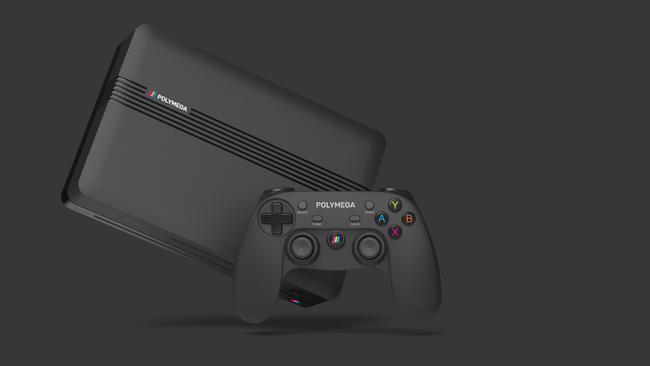
RPG Site: That’s good to hear . So, explain a little bit about how the Polymega works and the platforms that it currently supports.
Bryan: Absolutely. The Polymega, like I said, is a retro-focused modern console. It's modular too, so the modular system means that you have cartridge modules that you can plug into the system to be compatible with the old retro cartridges, Genesis, Mega Drive, TurboGrafx, and things like that. So the base unit though, which is sold separately, it includes an optical disk drive which has PlayStation 1, TurboGrafx CD, Sega CD, and Neo Geo CD support in the base unit, all in one box, and it's also compatible across regions. So all of its regional variants like the PC Engine CD and everything - those all work.
Then, if you have a system that you like and you have cartridges for, you could buy the element module set and that includes a module and a classic controller that we‘ve designed that comes with it for $59.99. It gives you access to using your cartridges with the Polymega system. Once you insert a cartridge you can back it up to the system, to the user interface, you can play it right off of the cartridge. Or you know, basically just manage it in a very modern way and have a nice beautiful presentation.
Once you've installed it, you don't need to keep that cartridge in the system anymore to play it and you just play it digitally through the backup. That allows people who are maybe getting a little bit older and have kids and things like that now to have an experience where they're not having to have a lot of people handle their cartridges and things like that. They can just keep it nice and modern and clean the living room.
RPG Site: That’s awesome. So you did mention this, but the base model is $249.99, right?
Bryan: Yes, $249.99. We just announced that this morning and then the modules are running for $59.99, but there is a chance that we may introduce a module in the future that might be a little bit more expensive for various reasons, of course,
RPG Site: So explain to me a little bit about one of the things on the poster is hybrid emulation. So if you wouldn't mind explain a little bit what exactly that is and what parts are driven by the FPGA (Field-Programmable Gate Array) hardware.
Bryan: So hybrid emulation at its core is - we are running traditional emulation and that is the way that you would play games that are not inserted into the console. But what hybrid emulation is there's an FPGA that's also on the board and we have a custom memory controller that sits in between the FPGA and the CPU and what that does is it interprets cartridge data directly from the cartridge when it's inserted. So if you have a game that has a special chip on it, like a Super FX chip, rather than trying to emulate that part of the cartridge, we are actually reading that chip directly off of the cartridge itself so that way we're going to get a more accurate reproduction. You're getting wider compatibility and all that sort of thing.
When we think about the games 20 years into the future, are people playing classic games? The emulation community is great, they're really doing a lot for preservation and things like that. But it's always kind of running with the stigma that publishers who may actually own those licenses are used without permission at times. So we kind of look at it as a bit of a problem that needs to be solved for both the publishers as well as the players. We're hoping to allow this by using this system and allow more broader audiences to access legal classic games.
RPG Site: Say, some companies that have maybe taken open source software without giving credit.
Bryan: Well, both of them. There's really a lot of issues. Here's the problem with open source software, and we've actually developed all of our own emulators in-house. The great thing about the emulators, if you understand about how software emulation development works, most of the systems were built off of the most popular chips set a time.
So you know, the 68k processor which is used by the Sega Genesis, the Mega Drive, the Neo Geo, and the Amiga. And then you have the 6502 processor which was used by the NES, the Super NES, the TurboGrafx 16. We're approaching development for these classic systems and their emulation - we're approaching it strategically. So we're building only a couple of new cores and then wrapping all the actual system emulation around those.
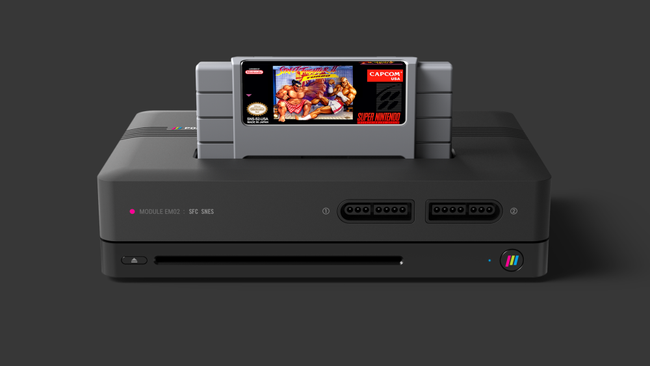
RPG Site: I imagine it to be kind of complicated if you ever get to the point where you want to do, like, here's PC98, FM-Towns, PCFX, that kind of stuff. I'm sure it requires an extra level of CPU modification?
Bryan: Everything requires a special tech to get it in. Some things are shared, some things are iterative with the original console. We've only announced support for the systems that we know that we can get done and we have experience building as well.
RPG Site: Moving on, what peripherals is the Polymega compatible with?
Bryan: Well, that's a big question. There's a lot of systems and a lot of peripherals. So rather than tell you what it is compatible with, I'll tell you what it’s not compatible with. So what it's not compatible with currently are light guns. So any kind of light gun games - GunCon, the Nintendo Zapper - the way light responds from HDTVs works as opposed to CRTs is totally different. And in order to make that work, we would need to introduce additional hardware peripherals and we haven’t been focused on that. But it's not an unsolvable problem, it’s just one that we haven't had time to work on ourselves.
RPG Site: I know we talked about that a little bit yesterday. Somebody mentioned it and you mentioned that maybe a sensor bar but it's still going to be complicated. So that would be the demand - you know, I’m sure everything is based on demand.
Bryan: To be frank, I think there's a good opportunity for a third party maybe to focus on the development of something like that. If they had the technical chops for it, I think it's a solvable problem.
RPG Site: Absolutely. Next, does the Polymega support any external storage?
Bryan: All of the core storage for the Polymega is actually external and it uses a [micro]SD card. So right now SD cards can support up to about 500GB through SDXC. There's a 1TB card that's in development right now and probably released in the next year or so. So you might have up to a terabyte of storage available on the Polymega.
RPG Site: I think you guys talked about how you switched from the microSD to the SD, right?
Bryan: Well, we had originally used the full-size SD. Rather than have users have to use adapters and things like that, almost every bit of flash memory that you buy nowadays in SD format is always the small part. So we just prefer to use the smaller card.
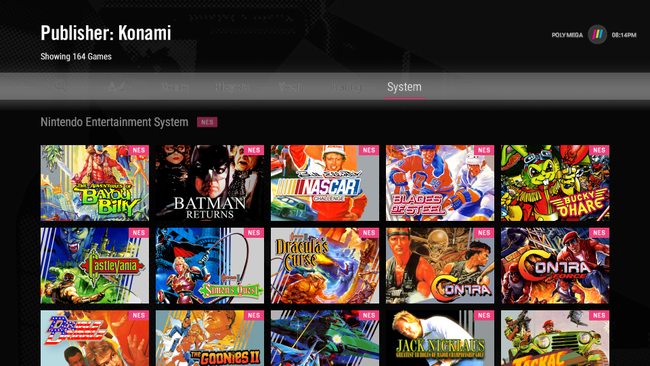
RPG Site: How well does the Polymega support the use of imported games?
Bryan: They are fully supported. The only one that I think some players might have to be cognizant of is that we don't support Famicom on the NES module, but the Famicom module will be released shortly after the initial set of modules.
RPG Site: And it doesn't matter if I get the PAL version and whether it’s 50Hz, 60Hz, or whatever, it would adjust for that, too?
Bryan: It automatically uses the original PAL 50Hz. And then we actually will have an option to bring it up to NTSC speed.
RPG Site: I think a lot of European players would appreciate hearing that because they had to be stuck with that. So actually going off that same note, I saw there was an option to use patches. Does that include the use of unofficial hacks like randomizers or anything like that? What is that patch option really for?
Bryan: Well the patch option is primarily for IPS patching, English translation patches, and things like that. The official game itself changes once you apply the patch. So what happens is you can select the patch from the SD card and you can actually apply it to the game that's currently playing. And then you can actually apply the patch and then launch it, and I'll create a separate version of it.
RPG Site: That’s really cool. And I saw on the forum that you're not really going to really have like a repository or anything like that for a bunch of patches, but basically , you would use the SD card to load those patches.
Bryan: You would use external media to load the patches on. One of the things that we have to be kind of careful about is, you have rights issues. These are modified versions of copyrighted works, and they're great. I love playing Japanese role-playing games that have been translated by the community. I'm a huge fan, and I would like to play them for the rest of my life if I could.
But for us, we have to be really careful about how those are used because we are trying to play nice with the publishers and make sure things are done legitimately. Our hope is that we will be able to get more of those games that are untranslated, translated with the support of the publishers in the future and be able to bring those to Polymega.
RPG Site: Okay, and I'm sorry that I didn't check this before, but there was no internet support or anything like that to download [patches]?
Bryan: Well, you know, it's not completely off the table, but we would need to get permissions from both rights holders.
RPG Site: Any plans to release any bundles like the base system plus all the current modules?
Bryan: TBD (To Be Determined). We're working on the bundle offerings. We announced the preorder will be later this summer. So there's gonna be a bunch of different options there, and it'll be done on Polymega.com.
We do intend to continue rolling out new systems and software and things like that for it. We're going to continually have new campaigns that are available for users to back on Polymega.com. And if maybe something that we're not sure is really going to excite the community, we will be able to check the temperature from the community through the preorder campaigns that we do there.
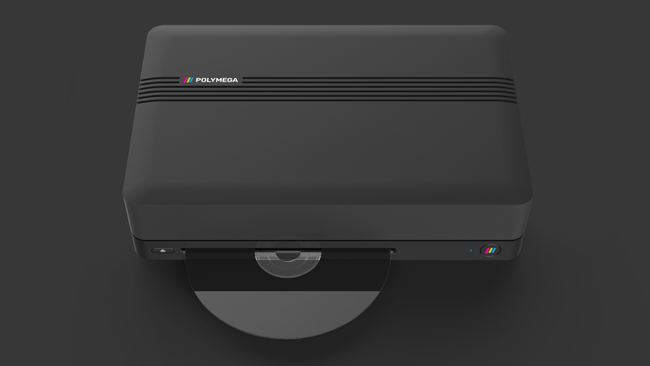
RPG Site: You guys seem very responsive to the communities, so that's been pretty good. Obviously , you said you're keeping your heads down a lot of the time, but I still see people responding.
Bryan: Obviously, there's a lot of different touch points for us. We try to be as responsive as we can and especially on our own forums. If someone has a question, the best place to go and ask is on our board because we made sure that that's really well monitored. Social media, you know, there's a lot of conversations always happening. Things may go over our heads, but we do try to be as responsive as possible.
RPG Site: That's good. I knew there was a chat about this yesterday, but how does the Polymega handle scratched disks?
Bryan: Ah, yes. For scratched disks on the install, there's error correction on the drive itself. If it doesn't complete the installation correctly or if it doesn't read the disk, it actually just gives you an error and tells you that it’s got a problem, but a bad install will not occur.
RPG Site: Anything to combat disk rot, missing data, or anything like that?
Bryan: Install it before it happens - that's basically the idea.
RPG Site: So you mentioned on the site you'd like to add Saturn, N64, and Dreamcast support down the line. Talk to us a little bit about the challenges, both technical and legal, you're facing there because I know you guys did bring up some of the legal roadblocks you've got with that.
Bryan: Well, when we initially started coming up with the system and we started consulting with our legal team, we basically went through the whole list and we looked at every patent that was still unexpired and created a short list of systems that we weren't going to touch for the launch of the system. We figured by the time this system was completely through development, we wouldn't be through the woods on the patent issues. So N64 being one of them.
RPG Site: That's what I assumed was the case just because, as you said, if it expired by now, they're slowly but doing that. So, the Polymega supports all these legacy platforms. How recent would you like to Polymega to get in terms of console generations?
Bryan: So we'll probably top out at Dreamcast. We're not planning to go into Gamecube or Xbox original or anything like that, frankly, because we appreciate that there are options to play those games on current gen systems. A lot of the intellectual properties, which are still very popular in current gen, were born in the PS2 era. And that's still kind of in that separate world from where we're operating out of. Now, it may be different if suddenly we have a partnership with a big brand like Sony or something like that and they're like, wait, we believe in what you're doing and yeah, maybe that might be a possibility.
But for now, we actually define classic gaming as when a second analog stick was introduced, so anything before a second analog was introduced. If you look at your grandma holding a PlayStation controller, she starts having a hard time with that second camera. We feel like that's kind of a good point to draw the line.
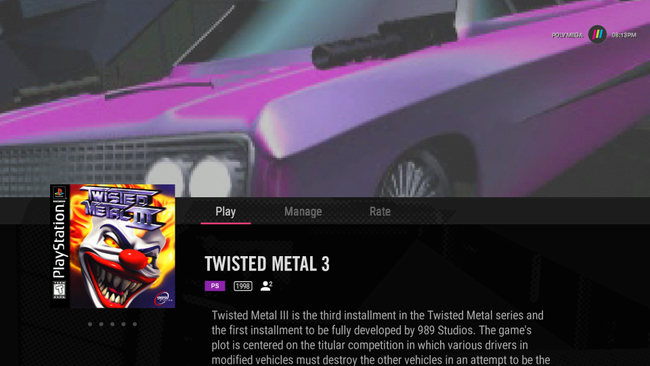
RPG Site: It seems like Sega is more open to working with third parties so that Dreamcast module might not be too far off, hopefully. So aside from adding those consoles, what are the kinds of improvements would you like to make post-launch to the system because you've got a limit - you've got to put it out - but what other improvements would you like to see on that?
Bryan: Well, that's a great question and one that I haven't actually talked to anyone really too much about. Apart from additional support for indie releases and homebrew and that kind of thing, one of the things that we're very interested in also is helping to prop up and support the vibrant homebrew community. One of the things that we are starting to work on and we've actually been integrating from the day we started developing our own emulators were development tools including debuggers, layout environment software and all that sort of thing. We're very interested in supporting the homebrew development scene as well as creating games that could be on the system.
RPG Site: Games like Pier Solar put on a Super Nintendo cartridge, you can play it on this system.
Bryan: That would be the baseline. And then we could potentially in the future have our own games for Polymega, which are games that are proprietary for our own platform and exclusive to it.
RPG Site: That actually is a good follow-up to the next question is I saw on the menu that there was mention of a digital store. What do you plan to offer there? Is that the kind of stuff you'd like to see on there?
Bryan: So, we have a robust database of 8,000 games that we partnered with MobyGames on, but we can't actually cover every single game that's out there. And there's always stuff being developed. So we're going to have a digital marketplace that we’re releasing three to six months after the launch of the system where games that are being developed right now can release even prior to the cart. A lot of people like to put their games on cartridges and stuff like that, but the problem is when they do that, they run the risk of having that ROM dumped and put on the internet, and it’s no longer is controlled.
So I think that there's a good opportunity for people who are indie developers to release something either as a Beta or preview or maybe the first version of it under some kind of time exclusivity system.
RPG Site: That sounds like it’d be helpful for them. So by offering this type of service to users to back up their games, are you concerned at all that they might use it for piracy?
Bryan: Well, it's definitely going to happen. I hope that users don't do it. I think the way that we're approaching the development of the system is to combat that as much as possible. We can't prevent it in some cases, but what we want to do is a lot more services that are better than what you're going to do from a piracy perspective. That goes back to offering new games, propping up independent development. We are working on having a subscription service for classic games, making it much easier for you to sign up with a credit card and get access to thousands of games rather than going and downloading a BitTorrent file and having to sift through it.
Actually, I don't really enjoy finding games through that experience; having a thousand games is a joyless experience. It's like, okay, I don't know what this Japanese name is, I don’t know anything about it. I don't know anything. So for us, providing all that information, some people may see it as being superfluous, but for us, you actually discover a lot of really great titles that you may never know about by having that information in front of you.
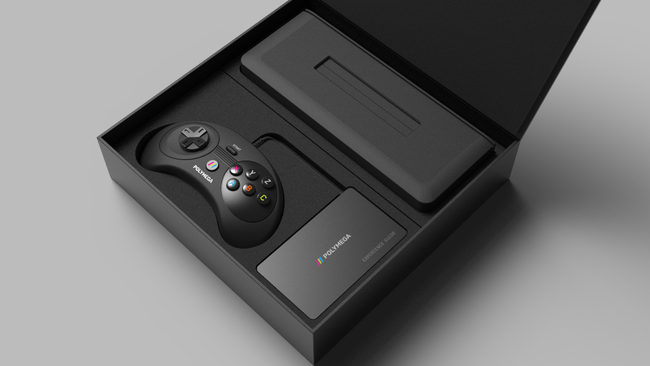
RPG Site: I know this was brought up before and I forget if there was an answer for that, but is there any plans at all to support portable platforms?
Bryan: That's a good question. Our perspective on portables is that they were made for being played on portable devices, so we haven't really been focused on it that much. You can use a Super Gameboy on the Super Nintendo module, so there are ways to play it. But as far as if you're talking about Game Gear and GBA, we may make a module for it in the future. I can't really say one way or another. I feel like if we were going to do it, we would just make a handheld at that point.
RPG Site: That may be preferable. So you said it was gonna be $249.99 for the base unit, which has an optical drive.
Bryan: So let me give you all the details. For the base unit, it includes the unit itself. It has a dust cover that looks like a module, but it just sits there and kind of covers the connectors and makes sure that it doesn't get messed up while you're not using the modules. That’s great if you have kids and you don't want them messing around and touching the connectors, you just put it on there, you've got your games already backed up and you can just play.
So that includes the dust cover, the base unit, one wireless controller, and you also have support for the classic systems: PlayStation One, Neo Geo CD, which runs about 80 percent faster than the original - what used to take three minutes to load a level, it takes 30 seconds now. Then we also have Sega CD and all its regional variants, TurboGrafx CD, PC Engine CD, and all its variants.
RPG Site: There’s also social media sharing, like how you’ll be able to stream through Twitch.
Bryan: So streaming through Twitch, it's basically handled where you'll be able to just initiate the system to stream whenever you're playing a game. So you can actually, if you have an account, that it’s linked to, you can make any of your social accounts on Facebook, Youtube, and Twitch, so you can basically stream directly from the frame buffer of the system.
RPG Site: I know there's video options on the system itself. Do you ever think you'll ever get to the point where it'd be like a Framemeister or something like that where it can optimize the visuals?
Bryan: As far as I know, the Framemeister is just a video upscaler. It jumps it up to 1080p from RGB signaling, which is nice, but it's expensive, I think it's 500 bucks. Our whole system with most of the modules won’t cost that much. So anyway, so as far as the system, yes it does upscale everything to 1080p. You have 4:3 and 16:9 in pixel perfect aspect ratios, and then we have a composite video filter, RGB filter, and native HDMI.
RPG Site: That’s what I really wanted to know, how it handled the video upscaling. And so do you have a release window for this console yet?
Bryan: So we're planning to release end of 2018 and it can be preorder this summer. There may be a couple of modules that come out in the early 2019 timeframe for delivery, but I will keep you guys posted on that. We're pretty close. The system, as you can see here at E3, everyone is playing it and it all works and everyone’s having fun.
I would like to personally thank Bryan for taking the time to speak with us during E3 2018. We will certainly keep an eye on the developments of the platform, and if you'd like to learn more, be sure to visit the official website. You can check out the rest of the press asset images they shared including a look at the different controllers below:
